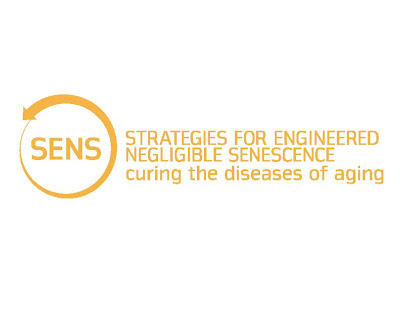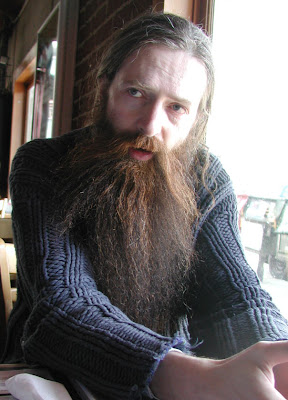Event Report by Don Rose
From June 27 to 29, 2008, researchers, policymakers and experts in the area of extending lifespan gathered to participate in the scientific conference "Understanding Aging: Biomedical and Bioengineering Approaches," held at UCLA. The conference included a free symposium for the general public on June 27th focused on public policy implications of successfully postponing aging. The scientific conference, on June 28th and 29th, focused on the science and technology of aging and its postponement.
This exciting proposition seemed to be the undercurrent of the entire conference, as the talks presented at the conference showed over and over again how researchers are isolating the various mechanisms that cause cells to die or develop problems, and what is being done to correct such problems. The promise is that if enough of these cellular self-destruction mechanisms can be identified and treated, the higher-level phenomenon we call aging may be delayed or eventually eliminated. The possibilities, of course, are mind-boggling. Luckily, the conference also included many lively break periods during which we could compare notes with fellow attendees and process all the information being presented. Each day of the scientific portion of the conference also included a reception period that featured excellent posters, presenting even more research that complemented and expanded on material covered in the main talks. The organizers of the Aging 2008 conference were Aubrey de Grey (photo), Irina Conboy and Amy Wagers. Dr. de Grey was the driving force behind the weekend gathering, keeping the proceedings on schedule and generously providing each attendee with a free copy of his ambitious, thought-provoking book, "Ending Aging." His work has faced some controversy during the past few years, but it struck me as extremely exciting and has the potential to not only save or extend the lives of millions of people in the coming decades, but also save governments billions by postponing the ravages of aging. After all, it is illness that costs money to treat, not the number of years one has been alive on Earth. If age-related illness can be postponed years into the future, or if the period of illness can be compressed into a short period at the very end of life, the potential benefits could be enormous.
The organizers of the Aging 2008 conference were Aubrey de Grey (photo), Irina Conboy and Amy Wagers. Dr. de Grey was the driving force behind the weekend gathering, keeping the proceedings on schedule and generously providing each attendee with a free copy of his ambitious, thought-provoking book, "Ending Aging." His work has faced some controversy during the past few years, but it struck me as extremely exciting and has the potential to not only save or extend the lives of millions of people in the coming decades, but also save governments billions by postponing the ravages of aging. After all, it is illness that costs money to treat, not the number of years one has been alive on Earth. If age-related illness can be postponed years into the future, or if the period of illness can be compressed into a short period at the very end of life, the potential benefits could be enormous.
Many themes and ideas came across during the three stimulating days of the conference. Here are just a few that came up again and again:
Cancer and Life Extension: two sides of the coin of life. In life extension, one goal is to find out why cells seemed programmed to die (after a few dozen divisions, cells reach the "Hayflick limit" and can no longer divide), and find ways to alter our programming so that cells can divide for longer periods of time, or even forever. However, cancer cells already exhibit this property. Hence, solving one problem (programmed cell death) may cause another (unchecked cancerous growth). Yet this also presents a great opportunity; since they are so interrelated, solving one of these broad challenges may lead to a solution to the other.
The Immune System and Cancer: one researcher showed White Blood Cells attacking and killing cancer cells, and showed evidence of how seasonal changes and climate affects the ability of our immune systems to combat cancer (greater incidence of cancer in winter months as you move away from the equator). The implication: healthy immune systems should in theory be able to stave off cancer as it does colds and flu. One may then wonder if perhaps a cancer vaccine is in our future.
Telomeres and Telomerase: one of the reasons researchers think cells stop dividing is because the ends of our chromosomes ("extra" DNA material known as telomeres) grow shorter with each division, like a cigarette shortening as it burns. Finding ways to keep telomeres long may solve this problem, and the enzyme telomerase does just that. Hence, telomerase therapy may be one piece of the aging-solution puzzle.
Learn From Immortals: one poster discussed fish that do not seem to age. Why does this occur? If we can identify the mechanisms at work in such fish, and other creatures that exhibit little or no aging, we may be able to replicate this desirable trait in us.
Calorie Restriction: also known as CR, this strategy has been shown to dramatically increase lifespan in rats, and CR does have many followers of the human variety. However, as one attendee said to me, CR may not be the best strategy to follow. After all, would you want to live forever in a state of perpetual hunger and irritability? Let alone possible health detriments that may outweigh the long-life benefits.
Use Evolution: the process of natural selection may be a blind watchmaker, but it is also very wise. Presumably, aging mechanisms evolved for a reason (for example, shortened telomeres that cause cell death also help prevent cancerous growths). Using the logic of evolution may help researchers decide where to look for the mechanisms that cause aging -- and to develop methods to counteract them.
This is just the tip of the iceberg of what was covered, and I left the conference fully stimulated and excited, eager to learn more, and to apply what was learned to my own life (where possible). I recommend this conference highly, although the first day was best for those folks (including yours truly) whose scientific knowledge of gerontology, biology and chemistry is not at the intermediate-to-expert level. Certainly I would have gotten even more out of the conference had my knowledge been greater, but in the age of the Internet, that can always be improved, and I am excited to embark on that journey. The LA Report encourages you to do so as well. After all, who doesn't want to Live Long and Prosper?
Overall, the Aging 2008 conference was a big success. Dr. de Grey and all the volunteers deserve kudos for their hard work, as well as their helpfulness and enthusiasm. One of the volunteers said that video of various portions of this year's conference will eventually be put online, so those of you who could not be there personally can soon be there virtually.
If you would like to learn more about the ending aging movement, life extension and related topics, here are some websites to explore:
www.mfoundation.org - Homepage of the Methuselah Foundation.
MFoundation-The SENS Platform - This “engineering” approach forms the broad basis for Strategies for Engineered Negligible Senescence (SENS), a detailed plan for curing human aging.
The Mprize-Welcome to the Methuselah Mouse Prize!
Aging 2008 and Aubrey de Grey at Wired
Unofficial Video From Aging 2008
www.lef.org - A related organization, the Life Extension Foundation.
You are here: Home > life extension > "UNDERSTANDING AGING" CONFERENCE BRINGS RESEARCHERS AND POLICYMAKERS TO UCLA TO DISCUSS STRATEGIES FOR INCREASING HUMAN LIFESPAN & DELAYING "OLD AGE"
July 7, 2008
"UNDERSTANDING AGING" CONFERENCE BRINGS RESEARCHERS AND POLICYMAKERS TO UCLA TO DISCUSS STRATEGIES FOR INCREASING HUMAN LIFESPAN & DELAYING "OLD AGE"
0
comments
CLICK TO (read) COMMENT
![]()
Labels: aging, conferences, event reports, future, life extension
Subscribe to:
Post Comments (Atom)

0 comments:
Post a Comment